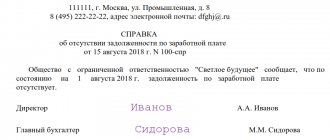New rules for recovery based on a court order
The general provisions for the provision of public services are described in Government Decree No. 354 (as amended in 2020). The document also specifies the maximum duration of non-payment without consequences. Then the manager has the right to initiate debt collection proceedings. In 2021, a new procedure, approved in 2021, is in effect - before this, the system worked on a different principle.
Old practice
Previously, the law had a more favorable attitude towards defaulters.
For each debtor, the management company was obliged to take a number of actions:
- send a written notification of the existence of a debt, or notify in person (by an employee of the management company);
- provide an opportunity to fully repay debts within a calendar month;
- propose to enter into an installment agreement for partial repayment at the end of each billing period.
For respectable citizens, such a mechanism was gentle, since there are more opportunities to find money and pay off the debt. However, this freed the hands of malicious defaulters. The management company could go to court for recovery only after these attempts at settlement and with confirmation in the form of signatures on notices and copies of agreements. This allowed some debtors to evade payments for several years.
Watch the video: “Cancellation of an order to collect debt for housing and communal services.”
Today
The procedure has changed in 2021. The participation of the defaulter before filing a claim was simply excluded. The organizations are requesting a court order. The issue of his extradition is considered quickly and unilaterally.
The updates are described in the Resolution of the Plenum of the Supreme Court of the Russian Federation dated December 27, 2016, which approved a new notification and collection process:
- Three billing periods must pass from the onset of debt formation. Until this moment, the Criminal Code does not have the right to initiate the procedure.
- After 3 months of non-payment, a notice is given. It indicates the amount of unpaid utilities with recommendations for repayment, usually a specific date. The opinion that such a notice must be served in person is erroneous. It is not recommended to draw analogies with a summons to the military registration and enlistment office here. Timely payments for housing and communal services are the responsibility of a citizen, who must independently control the occurrence of an unpaid balance (Housing Code of the Russian Federation, Art. 153).
- If the organization's recommendations are not implemented or ignored, its representative goes to court. The reason is indicated, documents confirming the existence of the debt are attached - statements, receipts.
- An important difference from the old procedure is that the court does not summon both parties. Review takes place within 5 working days (Article 126 of the Code of Civil Procedure)
- The management company is given a copy of the court order. The highest authority makes a decision in favor of the organization and gives the opportunity to collect the debt.
As a result, it is almost completely impossible to influence the proceedings. It is difficult to avoid the return of funds, so the defaulter can only challenge the court order to collect the debt for housing and communal services. But first you need to understand the essence of the document and what you need to follow to resolve the problem.
Court orders for the collection of housing and utility payments in questions and answers
This type of solution has its own characteristics. It is published in a matter of days without inviting the creditor and the debtor into the courtroom.
The Code of Civil Procedure of the Russian Federation contains an exhaustive list of grounds under which it is possible for a magistrate to carry out writ proceedings. Possible reasons include the presence of utility debts.
At the same time, both payers for consumed services and utility services periodically have questions related to the issuance, review and execution of the will of the court. Here are just a few examples of advice provided by lawyers.
Is it possible to cancel a court order for utilities in a municipal apartment?
I have a place of permanent registration in an apartment that was provided to my mother under a social tenancy agreement. I myself currently live with my common-law wife in another home.
Three days ago I was given a copy of the court order to collect my part of the utility debts for municipal housing. What should I do, because I don’t live in a living space for a long time, I don’t use water, heat or light.
Anatoly, Vnukovo.
According to the current version of the Housing Code of the Russian Federation, the very fact of registration in the premises gives rise to the obligation to make utility payments. Therefore, municipal services are right to initiate writ proceedings for debt collection.
It is allowed to challenge it due to disagreement with the amount of debt, but this will only gain time. After all, a statement of claim may follow, and the amount accrued by that time will still have to be paid.
Is it possible to appeal the court order of the magistrate regarding utility payments if 10 days have passed
The other day I received documents from a magistrate, according to which a debt in the amount of 25 thousand rubles was collected by court order for non-payment of hot water and heating.
Also on the topic: Eviction of an ex-spouse (husband) from an apartment
It was not possible to file an objection within ten days because she was in the hospital. Tell me what to do legally correctly in this case? Thank you in advance.
Victoria, Moscow.
There is only one way out of the described situation - to file objections regarding the further execution of the court order. Attached to it is a petition in order to restore the deadline for reviewing this form of decision with the attachment of documents confirming the presence of treatment.
True, there is one problem. Chapter 11 of the Code of Civil Procedure of the Russian Federation does not directly provide for the possibility of renewing the time for filing objections. Therefore, it is possible that the utility service may have time to contact the bailiffs.
Then the only way out will be to repay the accumulated debt voluntarily. 7 days are allotted for this from the date of receipt of the resolution notifying the start of enforcement proceedings.
If you receive a pre-trial notice of non-payment for major repairs
I live in an apartment building that is already 20 years old. Now I have received a letter from the regional operator about the need to make a contribution for major repairs for the previous year. Otherwise, the Criminal Code threatens to sue.
Tell me what is the best thing to do in such a situation? Thanks in advance for your answer.
Valentina, Lyubertsy.
First of all, it is necessary to resolve all disagreements with the organization. It is necessary to find out how the amount is calculated and whether the square meters of the apartment are indicated correctly. In order not to bring the case to court, it is allowed to agree in writing on the provision of installment plans.
The worst case scenario would be a court order. It is submitted without summoning the parties to the office of the magistrate. And if it is not canceled in time, employees of the FSSP department will begin to collect the debt.
How to appeal a court order for utility payments if the debts have been paid
Yesterday I received from the postman a document from the court, issued in order to collect the debt for consumed electricity. It states that the debt was generated in the second half of 2021.
However, all receipts for payment of electricity for this time period are available. What is the sequence of actions in this situation?
Dmitry, Balashikha.
Here you need to focus on deadlines. If 10 days have not yet passed since the receipt of the letter, objections are submitted to the magistrate. Copies of receipts for all payments are attached to them.
But most often there is another option, in which the order has already been transferred to the bailiffs for execution. Then a statement is written to suspend enforcement proceedings. Attached to it is a copy of the response to the order for housing and communal services with the number of the incoming magistrate’s court, as well as receipts for payments made.
Response to a court order to collect debts for utilities
An application has been submitted to collect from one of the residents of an apartment building serviced by the company arrears in rent and garbage collection. The magistrate issued a court order, but subsequently canceled it.
What steps should be taken next in this situation? Thanks in advance for your answer.
Manager, Moscow.
There is only one way out of this situation - filing a statement of claim to collect debts for payments. When preparing it, you should take into account the limitation periods.
In addition, it is necessary to provide a detailed breakdown of the existing debt by period - by month, quarter, half year, and other segments.
In addition, a state fee is paid. The required amount is calculated according to the scale given in paragraph 1 of Art. 333.19 of the Tax Code of the Russian Federation - from the price of the claim.
Explanation of the term “court order”
The document is mentioned in the Code of Civil Procedure of Russia. Based on Art. No. 121 – a court ruling has the force of an executive act.
Features of the order in litigation with housing and communal services:
- Availability of grounds - a statement from the management company with evidence of the validity of the claims in the form of attachments.
- The defendant in the claim is not invited, based on the irrefutability of the plaintiff’s claims. The logic is there - there are no fees for utility services, which is already a violation. The debtor's opinion is not taken into account here.
- According to the issued order, you can recover no more than half a million rubles of debt.
A court order for housing and communal services debts has several functions:
- decisions on a claim - issuance means recognition of the rightness of the plaintiff-creditor;
- executive – sufficient to begin the process of paying off debts;
- grounds for initiating enforcement proceedings.
The speed of processing an application is the main danger for those who, for some reason, are really not aware of the existence of unpaid utilities. The first alarm bell may be receiving a copy of the decision by mail (the duty of the magistrate - Article 128 of the Code of Civil Procedure of Russia).
In this case, the situation has already been resolved in favor of the Criminal Code. After canceling the court order to collect the debt for housing and communal services, it is allowed only within a certain period of time - 10 days (Article 129 of the Code of Civil Procedure). The request for cancellation must be justified.
How to draw up an application to cancel a court order for housing and communal services
To cancel a court order issued on the basis of arrears in payment of utility bills, you must correctly draw up a corresponding application, observing the requirements of the law.
applications to cancel a court order for utility bills free in word format
Attention! There is no strictly established form of the document, but it should include the following information:
- in the header of the document you should indicate the name of the court to which it is being filed, as well as its address. Please also indicate information about the debtor (full name, address of registration and actual residence (if they do not match), telephone number),
- in the application the parties must be named as follows: “debtor” and “collector”. It is unacceptable to use the wording “plaintiff” and “defendant”; this is a serious violation resulting in the judge’s rejection of the application,
- In the main part of the application, indicate the number of the court order and state its contents. Please also indicate information about the amount of the debt, and you should separately indicate the principal amount and the amount of the penalty for late payment,
- in the next part of the document it is necessary to indicate the reason why the debtor could not pay utility bills on time (for example, due to a serious illness),
- file a request to cancel the issued court order,
- after this, you should list those documents that form the annex to the application (medical certificate of the presence of the disease, certificate of income and other documentation that the debtor refers to in support of his claims),
- The document is completed with the signature of the debtor.
ATTENTION! Look at the completed sample application for cancellation of a court order for utility payments:
What housing and communal services can you avoid paying for?
Grounds for appeal
It is desirable that the factors for appealing the court order really exist, otherwise it will be problematic to meet the deadline. Usually one or more possible options are selected.
Disagreement with the amount
The most popular solution. Sometimes the Criminal Code mistakenly indicates the amount to be paid. In some situations, it is unlawful to charge fines and penalties. If the funds specified in the order do not coincide with one’s own vision of the state of the personal account, the decision must be challenged.
What constitutes an order in civil proceedings.
To do this, you must have receipts on hand. Experts recommend putting them in a separate folder from the very beginning so that you can present data for several years at once. The more information you can collect, the more justified your position.
Postponement
Sometimes it is not possible to repay the debt within the deadlines established by the management company, and then by the court, for good reasons. They may be the lack of registration in the region, serious illness or other unforeseen factors.
It is better to check with a lawyer about the possibility of a deferment for each case. A legal specialist will tell you what documents need to be prepared for a response to the court.
Limitation of actions
Usually, an attempt to collect old debt is a tool of unscrupulous management companies and homeowners associations. Often such lawsuits are filed to close holes in an organization's budget. A characteristic feature is that before contacting a higher authority, employees of the management company for a long time, in a persistent and aggressive manner, convince the citizen that he is obliged to pay all the arrears, threaten to turn off public services, and so on.
However, no one has canceled the limits of the claim period. When receiving a court verdict regarding old debts, you can safely appeal to this concept. According to clause 1 of Article 196 of the Civil Code of the Russian Federation, the period is three years.
Usually, as a result of consideration of an appeal from a consumer utility, the debt is frozen. They will not be able to collect it, but only until the first violation of the payment procedure. The next time you miss it, the amount will be added to the amount of the new debt. Therefore, it is better to solve the problem of the unpaid balance, request a recalculation or gradually pay off.
Order form
The executive act is drawn up in the form specified in Art. No. 124 Code of Civil Procedure of Russia. If the received copy does not correspond to them, then the decision can be successfully challenged. Most likely, this will only work once, because a simple mistake in drawing up an order will not help the debtor.
The creditor has the right to appeal again to a higher authority. At the same time, the likelihood that the verdict will again be drawn up incorrectly is minimal.
Consequences of the entry into force of a court decision
The management company must also provide justification for issuing the document.
However, it is easier for the creditor to do this, since a statement is sufficient, which indicates:
- name of the court;
- information about the organization;
- debtor data;
- history of the debt and its relevance - attached documents;
- an agreement with a housing and communal services company, which allows you to demand payment.
If doubts arise regarding the license to operate a management company, the court may return the application, in accordance with Art. 125 Code of Civil Procedure of Russia.
If all the necessary papers are available, then a fairly small number of receipts for the latest billing periods. The court order is issued in 2 copies. The first is handed over to the plaintiff, a copy is sent to the debtor in the form of a notice. The second one is certified by the official seal and sent to the local bailiff department.
This gives FSSP employees the right to:
- seize property owned by the defaulter, including real estate;
- initiate blocking of bank accounts - withdrawing money from them will be prohibited, funds will be written off to pay off the debt;
- limit travel abroad.
Execution of measures involves full collection of debt. A court order alone, if it is not challenged in a timely manner, is enough to authorize bailiffs to carry out a list of restrictive actions.
In what cases is an order issued?
Note: if you miss the 10-day deadline, even the situation of a low-income parent or a parent with many children will not help.
What actions should be taken next?
The Code of Civil Procedure does not speak about the procedure for considering an application to cancel a court order. However, this appeal is considered immediately upon receipt by the magistrates' court.
If enforcement proceedings have already been initiated, care should be taken to suspend the case. It is better to do this on the day of filing objections, by contacting the bailiff with a request to suspend enforcement proceedings. This can be done in the form of a petition.
When a court cancels a court order for utility services, this does not mean that the conflict is settled. Next, the resource supplying organization or management company can file a claim to collect the debt from the owner of the residential premises. And then all your arguments need to be confirmed in objections to it.
Naturally, documentary evidence will also be needed regarding the actual amount of the amounts, the expiration of the statute of limitations, and errors in calculations.
Algorithm of actions for challenging
The easiest way is to pay off the debt. However, it is only suitable for situations where a situation arose due to the user’s carelessness. In other cases, the court's decision should be challenged.
You must act immediately upon receiving a copy of the order. From this moment, a countdown of 10 days is initiated, after which it will not be possible to change the situation in your favor.
If it is impossible to appeal the decision during this period, then there must be valid circumstances:
- long business trip;
- being in a medical facility;
- other reasons.
The highest authorities must be notified about this. If there is evidence, the period has the right to be extended.
An application is being drawn up to cancel the court order to collect housing and communal services debt. The appeal should be submitted to the higher authority that made the previous decision.
You can deliver documents to the office:
- on one's own;
- through a representative authorized by a power of attorney;
- by registered mail - a less preferable option, since it takes longer and there is a risk of losing the postal item.
As a result, the court order will be terminated - the bailiff service will not be able to describe the property or close accounts. In the eyes of the law, from this moment a controversial situation is formed - in addition to the previously unconditional position of the management company, the opinion of the other side appears.
For your information: you can find a notice in the box about the start of enforcement proceedings. If a copy was not received earlier, then you must immediately apply for a stay of collection. Usually in such situations the bailiffs agree with the applicant.
Contents of the judge's order.
Immediately after submitting the application, it is worth preparing an evidence base - checks, receipts, certificates. They will be needed in the next step. After the order is canceled, the manager will file a second claim, which will be considered during standard litigation. In the process, you will have the opportunity to prove your case, but only if there are grounds for this.
To achieve a decision in favor of the debtor, you need to:
- submit your application on time;
- give compelling reasons;
- do not make mistakes when forming papers.
The last point often causes problems due to the rush in which the appeal is prepared.
Rules for drawing up an application for cancellation
Despite the lack of strict frameworks, it is worth adhering to the drafting recommendations.
The text of the application must indicate:
- Header with information about the applicant and the authority. You need to fill out your passport and contact information. The letter should be addressed to the magistrate who decided to issue the order.
- Link to the resolution - details, date of issue.
- A text detailing the reasons, entitled “Objection.”
- The requirement to accept a document for analysis, with the signature of the citizen and the date of application.
The magistrate reviews the application within 10 working days and makes a decision. If it is drawn up correctly, then the order will be canceled due to the citizen’s disagreement (Article 129 of the Code of Civil Procedure of Russia).
To avoid mistakes, it is better to draw up an application for cancellation of a court order to collect debts for housing and communal services using the sample.
Example for download.
The procedure for sending a copy of the judge's order to the debtor.
Note: the parties in the document must be referred to strictly as “debtor” and “collector”. Otherwise, the application may be rejected due to non-compliance with the form.
Preparing an objection
Further events develop differently. The emergence of a controversial issue does not oblige the magistrate to begin legal proceedings. The management company will be notified of the termination of the collection procedure. After which the service organization has the right to file a second claim. The result is a standard court hearing with the participation of the defaulter and a representative of the manager.
The initiative can also come from the debtor. If he disagrees with the claims of the housing and communal services, he has the right to write an objection to the court order to collect debts for housing and communal services.
The sample can be found here.
Thus, the very fact of a claim against a citizen is protested. If the outcome is positive, debts may be written off or a repayment procedure may be established.
It is important to have time to collect a package of papers and evidence. After receiving notice of the order and preparing to cancel it, there are about three weeks left to collect them.
Required documentation and deadlines for submission
An application with relevant attachments must be submitted within ten days from the receipt of a copy of the order, or within the extension period established by the court.
The list of required documents should include:
- objection to the statement of claim for the collection of debt for housing and communal services;
- receipts, checks, extracts as proof of correctness;
- documents, forms confirming the impossibility of timely payment;
- power of attorney, if the papers are transferred by a third party.
The review takes place within 10 days, after which the court remains to make a decision and notify the applicant.
Concept and goals
An objection to an application for collection of a debt is a document on the basis of which the court order is canceled. It is filed by a debtor who has received a registered letter from the court notifying him that a decision has been made against him to forcefully collect the amount.
The grounds for writing an objection may be:
- valid reasons why the owner did not pay off the housing and communal services debt;
- disagreement with the amount of debt that the management company wants to collect;
- the intention not to bring the matter to the point of forced collection and to pay off the debt without bailiffs interfering in the matter.
State fee for appeal
An application with documents is submitted without a fee. They only pay for going to arbitration if the magistrate court refuses to revoke the order. Then the state duty is 300 rubles, according to Art. 333.19 Tax Code of the Russian Federation.
Despite the undeniability of the claims, there is no need to give up or worry when receiving a notification. The main thing is to quickly submit a correctly written objection to the court order from the housing and communal services sector according to the sample and competently protest the position of the Criminal Code.
Watch the video: “How can you cancel a judge’s order to collect debt for housing and communal services.”
What else to read:
- Where to complain and what to do if the hot water in the apartment is low or there is no hot water - a list of authorities, samples of complaints about the absence or non-compliance with the DHW standard
- Where can you complain or call with a complaint about heating in an apartment in Moscow - responsible authorities, grounds for a complaint, recalculation, sample documents
- How to file a complaint against housing and communal services and management - step-by-step instructions
- Features of drawing up and submitting applications to a management company (MC) or housing and communal services in 2021 - rules, nuances of filing complaints, deadlines for responding to letters, 52 sample claims
Panacea or not
Accordingly, all orders and decisions can be appealed by citizens and organizations. It should be noted that the samples of objections to a court order for almost any reason are similar to each other. And they mainly come down to the fact that the person does not agree with the collection of funds.
Is this a panacea? Not at all. But in some cases, a court order can actually be canceled. Therefore, it cannot be said that the act being studied is a 100% victory. But they should not be neglected.










